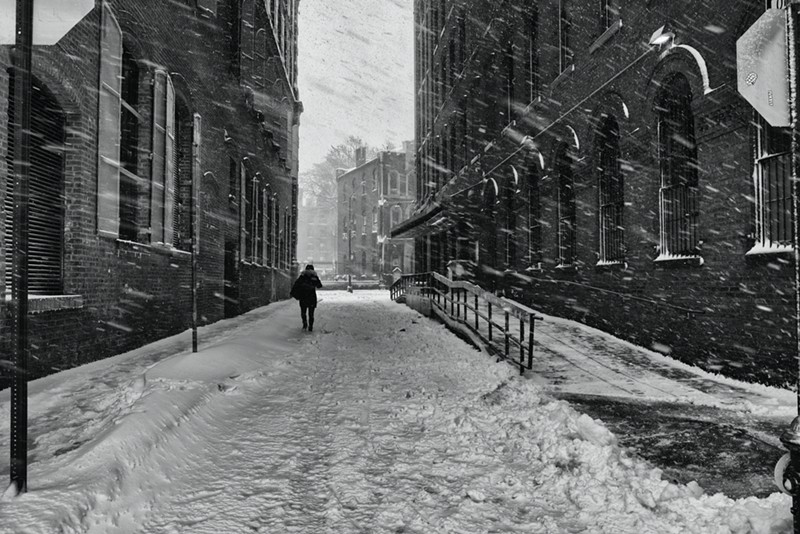Amid record-low temperatures that devastated the state, the Dallas architect received a whopping $3,000 energy bill that covered the span of a week.
“At some point, I feel like your stress level doesn’t go any higher, you know?” he said.
Like many other Texans, Adams was hit with an exorbitant bill following last week’s unprecedented winter storms during which millions experienced power outages and boil-water notices. Some have even complained that they’re being charged for power at a time when theirs was cut off.
Adams has two properties: a home and a condo, where his office is located. His friend and his friend’s two children currently stay in the condo, which receives power from the wholesale electricity retailer Griddy. Adams foots the utilities.
Then, the storm came. Adams said his rate, which normally hovers between 2 and 6 cents per kilowatt-hour, rose to $3. Then, it shot to $9.
When the prices began spiking, Adams asked his friend to lower the temperature; he complied and set it at 56 degrees. Adams knew there was a risk in using Griddy, whose selling point is that it allows consumers to pay a small monthly fee to get access to electricity at wholesale prices. Those prices can fluctuate widely in real time depending on supply and demand. But Adams never expected to be paying a rate that high for so little in return.
“It’d be one thing if they were running their dryer and keeping it 85,” Adams said. “But they’re barely surviving.”
Some Texans believe they’ve fallen victim to price gouging, but that isn’t exactly the case, said Adrian Shelley, the Texas office director of the advocacy organization Public Citizen. When the state’s Public Utility Commission (PUC) moved the wholesale price to the market cap of $9,000 per megawatt-hour, they did that for a reason that is “legal and justified.”
Limited supply and exorbitant demand caused by the state’s storms wound up hurting some consumers’ pocketbooks, Shelley said. Still, that’s how the market works: The retail customer always pays upstream costs in one fashion or another. How that cost trickles down is a function of their contract, and that's where the sticker shock is coming from after the cold snap."These people have made a decision to essentially kind of gamble on the wholesale market and only buy energy directly at the wholesale price.” – Adrian Shelley, Texas office director at Public Citizen
tweet this
Those using companies like Griddy see a straight translation of wholesale market prices on their bill when demand is high, Shelley said. Last week, spot prices shot up as much as 10,000% during the worst of the crisis.
“Other consumers have a plan that is spreading that extra cost out across their bills like peanut butter, we say, right? It smooths out over the year,” he said. “And these people have made a decision to essentially kind of gamble on the wholesale market and only buy energy directly at the wholesale price.”
Many Texans are also blaming the state's leadership for refusing to regulate energy, even after rolling blackouts occurred in 2011 and 1989. This legislative session, lawmakers will be tasked with figuring out a way to prevent a similar crisis from happening again.
Plano state Rep. Jeff Leach took to Twitter Thursday to air his frustrations with the energy companies.
The 2021 winter storm was unprecedented, but Leach said the state could have taken steps to avoid it. “The buck stops with the Legislature,” he told the Observer.To be clear: There will be hell to pay for energy companies or providers who take advantage of or overbill Texans after this crisis. I don’t care if it is permissible or legal. Every company should think long and hard before you send those energy bills to Texans. #txlege
— Jeff Leach (@leachfortexas) February 19, 2021
Moving forward, Leach said he hopes energy companies will act like “good corporate citizens,” with those taking advantage of vulnerable Texans being held to account. During the legislative session, lawmakers will consider enacting solutions such as requiring power producers to weather equipment or exercising oversight on PUC and the state’s power grid manager, the Electric Reliability Council of Texas.
“I’m hopeful and expectant that this Legislature right here, right now, will come together and get the job done for the people of Texas,” Leach said. “If we don’t do so, we will have failed in our responsibility to the people.”
Although Griddy warned customers of the oncoming surge, Adams said they did so when it was already too late to change providers. He said he received an email on Saturday, 13 minutes before he could enact a same-day switch. Even if he had, he still would have been stuck with the company for up to two weeks — well after the storm had passed.
Adams was already on a tight budget before this latest crisis arose; the pandemic had postponed some of his big architectural projects. Now, his debt to Griddy is straining his credit.
Still, Adams doesn’t blame Griddy. It’s “a startup that got caught with their pants down,” he said. But he is angry at the generators who decided that because they could set the rate at the maximum price, they would.
Even after the state’s power returned to normal on Thursday, Adams said he was paying the storm-surge rate of $9 per kilowatt-hour. The following afternoon, he got a Griddy notification with the subject: “Low Price Alert.”
“The price is 0.8¢/kWh right now,” the message read. “Get paid to to [sic] power up.”












